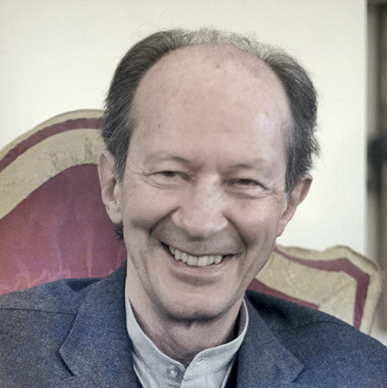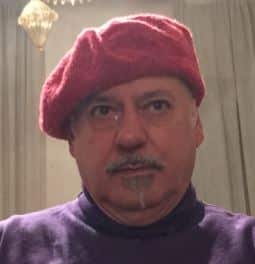The End of Judaism

By VT - Claudio Resta - October 1, 2024
An article by Giorgio Agamben *, prominent Italian jurist, philosopher and theologian from Quodlibet:

Giorgio Agamben
You cannot understand the meaning of what is happening in Israel today if one does not understand that Zionism constitutes a double negation of the historical reality of Judaism.
Not only does Zionism represent the culmination of that process of assimilation that, starting from the end of the 18th century, has progressively erased Jewish identity, in fact, in that it transfers the Christian nation-state to the Jews.
What is decisive is that, as Amnon Raz-Krakotzkin has shown in an exemplary study, the foundation of Zionist consciousness is another negation, the negation of Galut, that is, of exile as a principle common to all historical forms of Judaism as we know it.
The premises of the concept of exile predate the destruction of the Second Temple and are already present in biblical literature.
Exile is the very form of the existence of the Jews on earth and the entire Jewish tradition, from the Mishnah to the Talmud, from the architecture of the synagogue to the memory of biblical events, was conceived and lived in the perspective of exile.
For an Orthodox Jew, even the Jews who live in the state of Israel are in exile. And the State according to the Torah, which the Jews await with the coming of the Messiah, has nothing to do with a modern national state, so much so that at its center are precisely the reconstruction of the Temple and the restoration of the sacrifices, which the state of Israel does not even want to hear about.
And it is good not to forget that exile according to Judaism is not only the condition of the Jews, but concerns the defective condition of the world in its integrity.
According to some Kabbalists, including Luria, exile defines the very situation of the divinity, which created the world by exiling itself from itself and this exile will last until the advent of the Tiqqun, that is, the restoration of the original order.
It is precisely this unreserved acceptance of exile, with the rejection that it entails of every present form of statehood, that establishes the superiority of the Jews with respect to religions and peoples that have compromised themselves with the State.
The Jews are, together with the Gypsies, the only people who have rejected the state form, have not waged wars and have never stained themselves with the blood of other peoples.
By denying exile and diaspora at their roots in the name of a national state, Zionism has therefore betrayed the very essence of Judaism.

We should not be surprised then if this removal has produced another exile, that of the Palestinians and has led the state of Israel to identify itself with the most extreme and ruthless forms of the modern nation-state.
The tenacious claim of history, from which the diaspora according to the Zionists would have excluded the Jews, goes in the same direction.
But this could mean that Judaism, which did not die in Auschwitz, perhaps knows its end today.

Giorgio Agamben today
* = Giorgio Agamben is a jurist, philosopher and theologian of Armenian origin among the most authoritative living, generally dealing with themes of political philosophy (in particular the concepts of state of emergency, exodus, sovereignty and biopolitics), Christian and Jewish mysticism, angelology, history of art and literature.
Dealing with among others: Walter Benjamin, Jacob Taubes, Alexandre Kojève, Michel Foucault, Carl Schmitt, Aby Warburg, Paul of Tarsus.
Agamben was educated at the University of Rome, where in 1965 he wrote an unpublished laurea thesis on the political thought of Simone Weil.
Agamben participated in Martin Heidegger’s Le Thor seminars (on Heraclitus and Hegel) in 1966 and 1968.
In the 1970s, he worked primarily on linguistics, philology, poetics, and topics in medieval culture.
During this period, Agamben began to elaborate his primary concerns, although their political bearings were not yet made explicit.
In 1974–1975 he was a fellow at the Warburg Institute, University of London, due to the courtesy of Frances Yates, whom he met through Italo Calvino.
During this fellowship, Agamben began to develop his second book, Stanzas (1977).
Agamben was close to the poets Giorgio Caproni and José Bergamín, and to the Italian novelist Elsa Morante, to whom he devoted the essays “The Celebration of the Hidden Treasure” (in The End of the Poem) and “Parody” (in Profanations).
He has been a friend and collaborator to such eminent intellectuals as Pier Paolo Pasolini (in whose The Gospel According to St. Matthew he played the part of Philip), Italo Calvino (with whom he collaborated, for a short while, as advisor to the publishing house Einaudi and developed plans for a journal), Ingeborg Bachmann, Pierre Klossowski, Guy Debord, Jean-Luc Nancy, Jacques Derrida, Antonio Negri, Jean-François Lyotard and many, many others.
His strongest influences include Martin Heidegger, Walter Benjamin and Michel Foucault.
Agamben edited Benjamin’s collected works in Italian translation until 1996, and called Benjamin’s thought “the antidote that allowed me to survive Heidegger”.
In 1981, Agamben discovered several important lost manuscripts by Benjamin in the archives of the Bibliothèque nationale de France.
Benjamin had left these manuscripts to Georges Bataille when he fled Paris shortly before his death.
The most relevant of these to Agamben’s own later work were Benjamin’s manuscripts for his theses On the Concept of History.
Agamben has engaged since the nineties in a debate with the political writings of the German jurist Carl Schmitt, most extensively in the study State of Exception (2003).
His recent writings also elaborate on the concepts of Michel Foucault, whom he calls “a scholar from whom I have learned a great deal in recent years”.
Agamben’s political thought was founded on his readings of Aristotle’s Politics, Nicomachean Ethics, and treatise On the Soul, as well as the exegetical traditions concerning these texts in late antiquity and the Middle Ages.
In his later work, Agamben intervenes in the theoretical debates following the publication of Nancy’s essay La communauté désoeuvrée (1983), and Maurice Blanchot’s response, La communauté inavouable (1983). These texts analyzed the notion of community at a time when the European Community was under debate.
Agamben proposed his own model of a community which would not presuppose categories of identity in The Coming Community (1990).
At this time, Agamben also analyzed the ontological condition and “political” attitude of Bartleby (from Herman Melville’s short story) – a writer who “prefers not” to write.
Currently, Agamben is teaching at the Accademia di Architettura di Mendrisio (Università della Svizzera Italiana) and has taught at the Università IUAV di Venezia, the Collège international de Philosophie in Paris, and the European Graduate School in Saas-Fee, Switzerland; He previously taught at the University of Macerata and the University of Verona, both in Italy.
He has also held visiting appointments at several American universities, from the University of California, Berkeley, to Northwestern University, and at Heinrich Heine University Düsseldorf.
Agamben received the Prix Européen de l’Essai Charles Veillon in 2006.
In early 2004 he resigned from teaching a course at New York University, where he had been invited, in protest against the new rules on the entry of foreigners into the United States of America that require registration and fingerprinting.
In 2013 he was awarded the Dr. Leopold Lucas Prize by the University of Tübingen for his work titled Leviathans Rätsel (Leviathan’s Riddle, translated into English by Paul Silas Peterson).

Claudio Resta was born in Genoa, Italy in 1958, he is a citizen of the world (Spinoza), a maverick philosopher, and an interdisciplinary expert, oh, and an artist, too.
Grew up in a family of scientists where many sciences were represented by philosophy to psychoanalysis, from economics to history, from mathematics to physics, and where these sciences were subject to public display by their subject experts family members, and all those who they were part of could participate in a public family dialogue/debate on these subjects if they so wished
